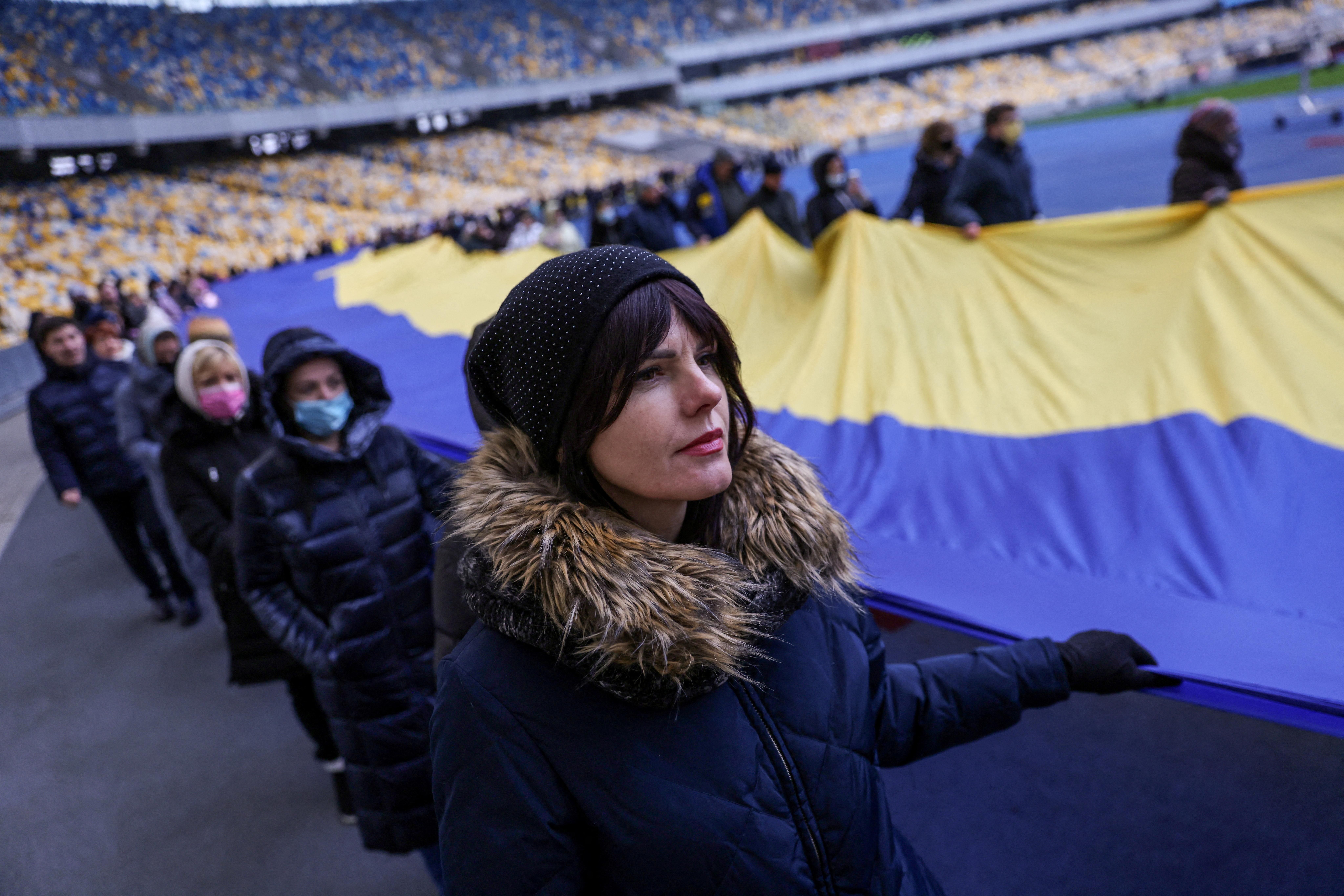What We're Watching: US-NATO skepticism, EU rule of law ruling, US truckers' protests, atrocities in Tigray, guac wars
US-NATO skepticism and Ukrainian unity. The US and NATO aren’t yet buying claims by Russia’s President Vladimir Putin that some Russian troops have pulled back from the Ukrainian border. “We have good reason to believe the Russians are saying one thing and doing another … in an effort to hide the truth,” said a US State Department spokesman on Wednesday. NATO Secretary-General Jens Stoltenberg then warned that NATO sees a continued buildup of Russian troops and that the alliance must prepare for a “new normal” in which “Russia is willing to contest some fundamental principles of our security.” Ukraine’s President Volodymyr Zelensky, meanwhile, continues to strike a delicate balance. On Wednesday, he tried rallying his war-weary country to celebrate a "Unity Day" with mixed results. He's urging both outsiders and Ukrainians not to exaggerate the threat of a Russian invasion that is stoking fears and hurting Ukraine’s economy. But he’s also moving forward with a bold plan to tackle Russia-friendly “oligarchs” at home. He announced on Monday that he will keep promises to tackle both corruption and Russian influence within Ukraine by stripping some of the country’s richest business owners of some of the wealth that Zelensky says gives them too much influence over the country’s policies and politics.
Is Europe really Hungary to fight over money? The European Court of Justice on Wednesday ruled that the EU can withhold money from members that violate the bloc’s rule of law standards. This gives the EU a tool for ensuring democratic norms are upheld in countries like Poland and Hungary, which have been accused of undermining judicial independence and facilitating corruption. Warsaw and Budapest say the ruling is an attack on their sovereignty. The ball is in the EU’s court, putting European Commission President Ursula von der Leyen on the spot. The European Parliament, which approves bloc-wide budgets, wants her to use the mechanism right away, particularly against Hungary, which faces crucial elections in April. But larger states like Germany and France prefer a slower roll, particularly as the standoff with Russia over Ukraine tests European unity.
US truckers revving up to protest. Buckle up America, the big wheels are coming. Organizers of an American protest modeled on the Canadian truckers’ “Freedom Convoy” say they’ll begin driving on Feb. 23 from California to Washington, D.C., to protest vaccine mandates and other pandemic restrictions. The announcement comes just days after the Canadian government invoked emergency powers to clear a weekslong anti-mandate protest by Canadian truckers who have occupied downtown Ottawa and blocked crucial US-Canada trade routes. Depending on how much momentum the American truckers get, the “People’s Convoy” could exacerbate supply chain issues and the trucker shortage, posing a tough political challenge for President Joe Biden as he struggles to regain the narrative on the pandemic and the economy.
Atrocities in Ethiopia. Fighters affiliated with the Tigrayan People’s Liberation Front (TPLF) have killed civilians, gang-raped dozens of women and girls, and looted property in Ethiopia’s Amhara region, according to a report published on Wednesday by Amnesty International. The rights group accuses Tigrayan rebels of these crimes, part of an ongoing civil conflict plaguing the country in recent years. It’s not just the rebels who are committing atrocities, according to Amnesty. The group says it has also documented massacres and sexual violence by Ethiopian government forces and allied militias, as well as fighters from neighboring Eritrea. The ongoing conflict, with sharp swings of momentum between government and rebel forces, continues to inflict hunger and suffering. Amnesty is calling for UN investigations and coordinated efforts to bolster human rights in the region.
Is there a guac war? Avocado lovers’ eyes may have watered at the checkout over the past year as prices for the fruit (yes it’s a fruit) have doubled, but now they may simply cry. The US has banned imports of avocados from Mexico, following an alleged verbal threat made by phone against a US safety inspector there. The avocado trade is a multi-billion dollar business these days, and even Mexico’s powerful drug cartels are fighting for a slice of the action. The ban will remain in place until Mexico can guarantee the safety of US fruit inspectors, but with 80 percent of avocados in America coming from Mexico, that means fans of the erotically named fruit will need to brace for higher prices and empty shelves. President Andres Manuel López Obrador, meanwhile, has hit back, accusing Washington of conspiring against Mexican traders to boost American farmers’ sales.